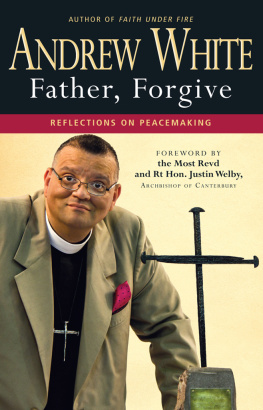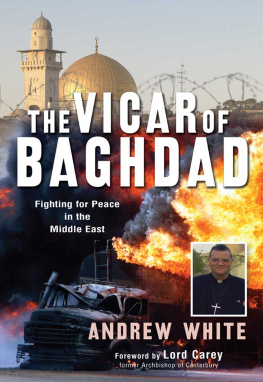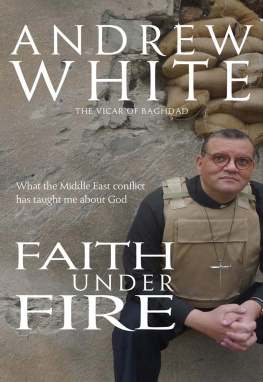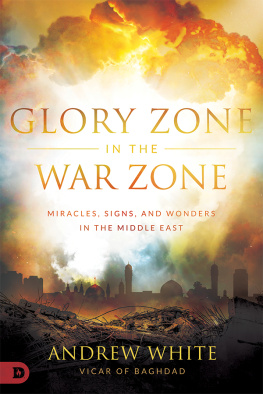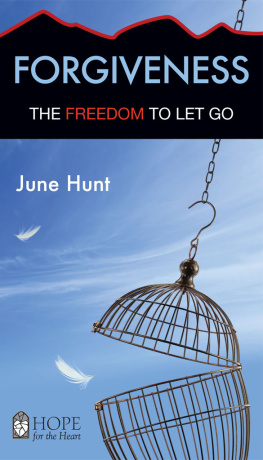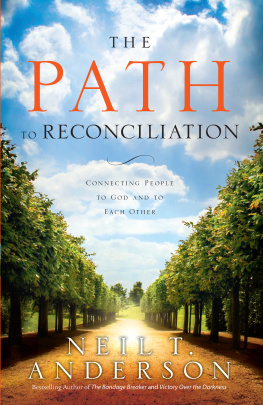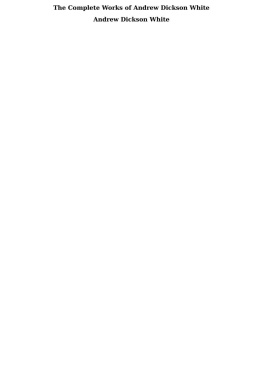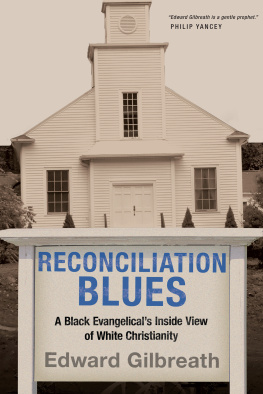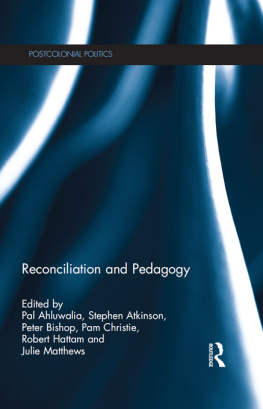

Copyright 2013 Andrew White
This edition copyright 2013 Lion Hudson
The right of Andrew White to be identified as the author of this work has been
asserted by him in accordance with the Copyright, Designs and Patents Act 1988.
All rights reserved. No part of this publication may be reproduced or transmitted
in any form or by any means, electronic or mechanical, including photocopy,
recording, or any information storage and retrieval system, without permission in
writing from the publisher.
Published by Monarch Books
an imprint of
Lion Hudson plc
Wilkinson House, Jordan Hill Road,
Oxford OX2 8DR, England
Email: monarch@lionhudson.com
www.lionhudson.com/monarch
ISBN 978 0 85721 292 4
e-ISBN 978 0 85721 466 9
First edition 2013
Acknowledgments
Scripture quotations taken from the Holy Bible,
New International Version Anglicised
Copyright 1979, 1984, 2011 Biblica, formerly International Bible Society
Used by permission of Hodder & Stoughton Ltd, an Hachette UK company
All rights reserved
NIV is a registered trademark of Biblica
UK trademark number 1448790.
Scripture quotations marked NKJV is taken from the New King James Version.
Copyright 1982 by Thomas Nelson, Inc. Used by permission. All right reserved.
Scripture quotation marked NET is from the NET Bible copyright 19962006
by Biblical Studies Press, L.L.C. http://bible.org All rights reserved. Scripture
quoted by permission.
pp. : Reproduced from the website of John Hagee Ministries. Please visit
www.jhm.org to see the full text.
is used with the kind permission of Martin Williams.
are used with the kind permission of Al Hassan.
All other photographs used with permission of FRRME.
A catalogue record for this book is available from the British Library
Cover photo: Al Hasan
By the same author
The Vicar of Baghdad
Faith under Fire
Suffer the Children
Iraq: Searching for Hope
To Justin and Caroline Welby
Acknowledgments
I n giving my thanks to those who have enabled this book, I must begin by thanking those who have been part of this story of the journey of reconciliation. They have all taken great risks, endured great suffering and persevered to the end.
My warmest thanks to the Archbishop of Canterbury, the Most Revd and Rt Hon. Justin Welby. He has not only written the brilliant Foreword to this book, but he has also been my biggest partner ever in this unending journey. Together and alone we have travelled into the heart of the fire and cried, Father, forgive.
I thank those who are part of this continuing journey with me now, both those on the ground here in the still profoundly hostile Iraq, and those who enable the work of the Foundation for Relief and Reconciliation in the Middle East in both the UK and the USA. In Baghdad I could not do my work without my immediate team, Dawood and Lina, who have been with me since they were little children. I unofficially adopted them over ten years ago. Now Lina is my PA and Dawood is my special assistant. They are joined by Al Hassan, my photographer and media officer, who some of the pictures for this book. Then there is Ungo, our never-failing driver, who is with us all the time. In addition to this all-Iraqi team I have our one non-local, Paul White, our Middle East Project Officer from Texas, whom I first got to know when he was a student at Wheaton College in Illinois. He travels with me wherever I am in the world.
Then there is my whole team in the UK, and especially Lesley Kent, my UK PA, Philip Rowden, Ken Phipps and all our office team. There are so many other people I need to thank who are part of this story: both political and religious leaders, as well as the various diplomats who have also supported our work.
There are two people without whom none of my books could happen: Tim Pettingale, my outstanding editor, who meticulously goes through my writing; and Tony Collins, my publisher, without whom this book simply would not have been written.
Finally, I thank the unsung heroes of my life and work my wife Caroline and my children Josiah and Jacob who cope without me much of the time. In essence, I can only do this work because they allow me to.
Foreword
A ndrew White is one of those people that I boast of having met, and even more so boast of having worked with. He is one of the most unusual characters currently within the Church of England, defying the accusation that all ordained clergy now fit into a single mould and are without character or eccentricity.
In the eighteenth century Andrew would have been a pirate or a privateer. He has the extraordinary capacity to sail the seas of conflict, coming alongside those involved in causing and delivering violence especially around the issues of religion and capturing them for the cause of peace. To do this he breaks most of the rules in any book of health and safety, personal protection, and bureaucratic process.
His previous books have set out some of the stories around which he has worked. Father, Forgive goes back to the extraordinary events of November 1940, in which another holy pirate, the Very Revd Dick Howard, the then provost of Coventry Cathedral, went into the ruined building after the night of the first great air raid on the city of Coventry and wrote on the wall with a piece of burnt wood: Father, forgive.
As Andrew sets out in this book that particular incident was the origin of a great movement of peace, which, under Dick Howards successors, and those responsible for Coventrys reconciliation ministry, has led to the establishment of not far short of 200 peace centres around the world, and one of the great symbols of reconciliation. To this day, the impact of taking people to Coventry to participate in its Litany of Reconciliation, around which this book is structured, is dramatic and at times overwhelming.
Andrew is a reconciler but he never compromises with the truth of the gospel and the uniqueness of Jesus Christ. In the conclusion to this book he talks about two great commands: Forgive, forgive, forgive, and Love, love, love. Perhaps one of the origins of his enormous impact on those he meets is that these are genuinely the ways in which he works. He inspires forgiveness and demonstrates love, both in word and above all in action.
The Christian faith is based on the reconciliation of human beings with God through the self-giving love of Jesus. But for far too many of us that reality does not sufficiently inspire action. Andrew is one who is constantly seeking to turn reconciliation into a lived-out reality. To do that he takes huge risks, and yet the risks are taken in faith with immense determination and intelligence.
The book is controversial. There will be things in it that inspire most of us. Equally, some may disagree with something he says, but nobody can disagree with the commitment and passion with which it is written, and like all important spiritual leaders, even where there is disagreement there is also the capacity to provoke new thought, fresh imagination, and a desire to see beyond what is humanly possible to those things that are possible only with God.
The work of Coventry Cathedral continues, and Andrew is only one in a line of extraordinary individuals who have been responsible for its impact. Many have been characterized by this holy piracy, often worrying to oversee, but always deeply committed to the cause of Christ and the work of the kingdom. May the passion of this book guide our own walk with Him.
Next page
